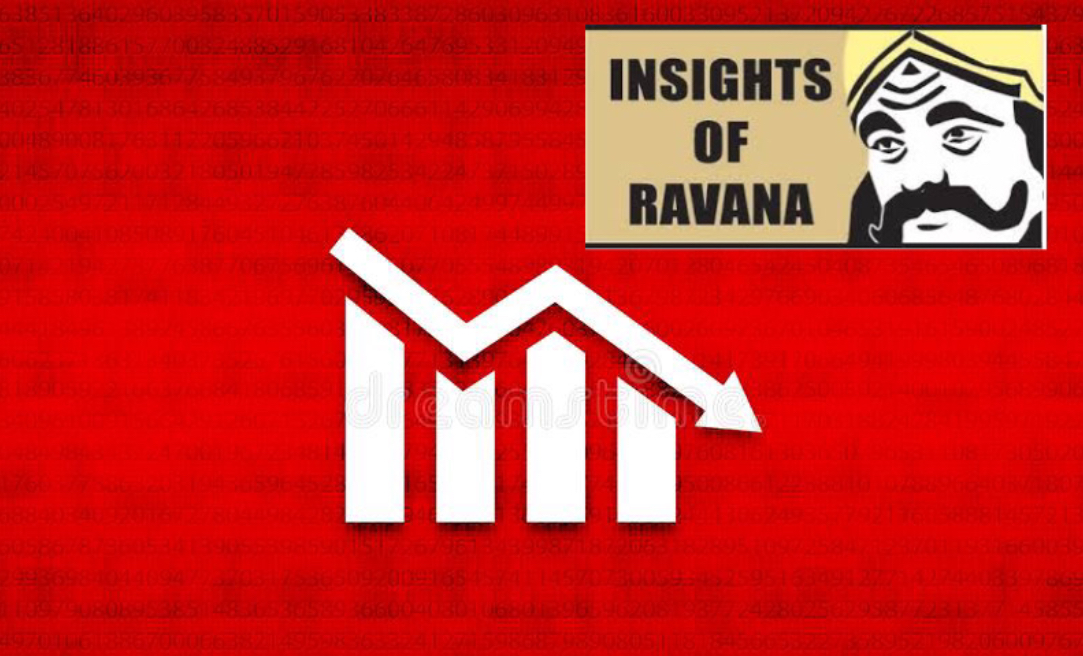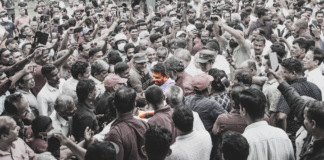The dawn of the New Year is somewhat significant for Sri Lanka. It comes in the backdrop of rating agencies downgrading Sri Lanka and the Central Bank, hurriedly getting ready to pay the sovereign bond obligation of 500 million US dollars by mid-January.
Politically it is more momentous since President Rajapaksa signaled that he will not hesitate to stir the political pot. His motto for the year is either work with me or depart. Addressing a crucial Cabinet meeting he showed the door to the critics of the government. The day after, the visibly upset President sacked State Minister SusilPremajayantha for his purported criticism of the government affairs reportedly made at a suburban fair in Delkanda.
The sacking of Susil Premajayantha was only the tip of the iceberg and more shocking things are likely to follow.
Premajayantha was at one stage a minister in the Chandrika Kumaratunge cabinet and then in the cabinets of Mahinda Rajapaksa and Maithripala Sirisena. Premajayantha left the Yahapalanacabinet on the pretext of saving the country from Ranil Wickremesinghe, the then Prime Minister. There was a sort of sturdy campaign launched by the left-oriented Wimal Weerawansa and the crowd named “Mahinda Sulanaga.” The prime aim was to bring the politically dejected Mahinda Rajapaksa back to the limelight and to inspire him to take to active politics. The underlying message was to convince him and the masses that Mahinda Rajapaksa was not politically dead.
The counter-propaganda arm of the Ranil Wickremesinghe administration failed to identify the magnitude of the campaign that gained momentum in the hinterlands. Rajapaksa and the war victory over the LTTE gelled very well for the campaigners to work out a massive propaganda blitz.
They made it a point to repeatedly portray Rajapaksa as the only saviour that Sri Lankans could look forward to salvaging the country from a political swamp that was the Yahapalanaya government. The people now realise that “Mahinda Sulanga” was just a ruse for a few political lackeys and vassals to tag on to him and climb the political ladder.
The economy when Wickremesinghe was Prime Minister was far better than today. People could also breathe in a free environment where nobody chased behind individuals for sharing a Facebook post. Wickremesinghe and Sirisena became the frequent subject of mimicking and spoofing. The Police never faced embarrassment with orders from the top to track down people exercising their legitimate and democratic rights, unlike today. There was democratic space during the Yahapalana and the people have come to realiseit only now.
Under the circumstances, isn’t it worthwhile to compare commodity prices during the Wickremesinghe period to that of now?
During the Yahpalana regime of Sirisena -Wickremesinghe, the prices were as follows: rice Rs. 70 per kg. a cylinder of 12,5kgs of cooking gas was Rs. 1400, sugar Rs. 90 per kg, one litreof petrol Rs. 137 and a 750ml bottle of coconut oil was Rs. 280. Anybody can compare the prices and see how it has skyrocketed in a short period during the Rajapaksa administration.
The focal point of the thrust was that Wickremesinghe was trying to sell valuable state assets to bridge the annual budget deficit.
The cohesive campaign against Wickremsinghetook a virulent form, with Weerawansa, Gammanpila and Vasudeva Nanayakkara taking upstage.
The slogan was that there should be a country left for future generations to live in peacefully. Simultaneously, opposition groups pinpointed that the proposed MCC (Millenium Challenge Corporation) agreement will divide the country. The campaigners also stated that there will be a corridor up to Trincomalee, dividing the country into two separate blocks with a map to depict the divided country. Ven. Medagoda Abyatissa played a prominent role in the campaign as a Buddhist monk of influence. He used all the power at his disposal to smear the Yahpalana regime.
People were ever ready to believe the monks and the lay campaigners and they were able to hoodwink the people ensuring a dramatic comeback for the Rajapaksas. Our protagonist today, Susil Premajayantha, also joined the bandwagon of protestors. He joined Mahinda Rajapaksa to oppose the Yahapalana.
Premajayantha in a way, was trying to take advantage of both sides. When he felt he was at a disadvantage, he shifted his loyalties. His guess was completely accurate. The Yahapalana’s faced a humiliating defeat at the elections and were replaced with the now intolerable Rajapaksa regime. Premajayantha possessed a chequeredhistory as a politician. His role as the minister-in-charge of petroleum created a countrywide controversy over the distribution of substandard petrol by the Ceylon Petroleum Corporation. There were media reports that Ranil Wickremesinghe’s car also stalled due to substandard petrol being pumped in.
As the Minister of Education, there were questions raised about the conduct of his staff. His departure however has not caused any hiccups in the political apparatus. Nevertheless, many defended the President’s decision to sack him. Chief among them was verbose and garrulous Minister Johnston Fernando, who is losing his credibility among the people rapidly for his capricious political behaviour and SagaraKariyawasam, who was scheming to oust him altogether from the Sri Lanka PodujanaPeramuna (SLPP). In politics, this could be the story for anybody. Today’s political ally becomes the enemy overnight. It may be for individual gain. Rarely do people stand by their convictions. Prime Minister Mahinda Rajapaksa also defended the President’s stand. In a passing remark he said that criticism should be within the confines of the government and saved his face from further embarrassment by not answering questions. The Prime Minister in any case, cannot do anything other than toeing the President’s line. Minister Wimal Weerawansa remarked it is not the time to let the people go but to get more support even from the opposition to tide over the situation. He was hesitant to talk because there was speculation that he and two others would soon be on the chopping block. Weerawansa took some precautions when he faced the media after a function in Colombo. He immediately consulted Minister Dinesh Gunawardene, who was next to him. Gunawardena assured him and gave him the green light to go ahead with his remark. The pertinent question raised in political circles is “How come it is only Premajayantha? What about Vasudeva Nanayakkara, Udaya Gammanpila and Wimal Weerawansa who criticised the government openly on the Yugadhanavi issue? They furnished the answer themselves and said all that is part of a political drama. The trio will not leave the government but gradually fall in line with the Rajapaksa thinking. They are well aware that they are walking on thin ice as far as the Yugadhanavi issue is concerned, especially now after the removal of Premajayantha.
Besides, the Samagi Jana Balawegaya (SJB) invitation to Premajayantha was a rather foolish move. The more relevant question is whether the SJB is so bankrupt that it lacks people with political acumen.
Knowing Premajayantha and how he left the Yahapalana’s, the invitation to Premajayantha is rather emotional than pragmatic. If it is for a political reason, the SJB should weigh his capabilities and whether he could muster a sizeable vote for them. The conclusion of many is in the negative. More than anything, Premajayantha’s life– long loyalties are with the Sri Lanka Freedom Party (SLFP).
Therefore, let Premajayantha fight his own battle with his friends in the SLFP who have already started firing barrages of criticism at the government of Gotabaya Rajapaksa. The other day SLFP leader and former President Maithripala Sirisena addressed meetings in Anuradhapura and Matale where he tore the agriculture policy of the present government to pieces. He said even the British did not harm the peasantry farmer the way this government has done.
He referred to the domestic gas explosions and queried from the government whether they will dare to hold an inquiry and bring to book those responsible. Sirisena targets the highest in the land and even the UNP using vituperative language. Sirisena doesn’t mince his words. Talking about Premajayantha, he said sacking Premajayantha was the first election result for 2022. By sacking one minister, the government cannot mitigate the erosion. He asked why the government was not inclined to prepare a charge sheet against Nimal Lansa, who was virulently critical of the government. ” I know the reason because he knows inside out of what is happening behind closed doors”.
In addition, the SLFP General Secretary also challenges the government to oust the SLFP from the government benches if possible and see the predicament that befalls the government. The New Year tidings look awful for the government though they have already devised a plan to shuffle the Cabinet. The rearrangement would be mainly to appease Finance Minister Basil Rajapksa, who wants to create an influential coterie of Basil loyalists to run the administration.
The main task of the finance minister is to lift the country from the economic precipice it is already in with his so-called intellectual clique since President Rajapaksa’s viyath maga has failed the government miserably.
We as a country are facing an economic downturn from the end of 2019 simply because of the voluminous tax concession granted to big businesses. The tax relief thus granted virtually reduced the financial capacity of the government coffers drastically. The government still defends its position and has no intention of seeking the assistance of the International Monetary Fund (IMF) to restructure the economy.
The Cabinet has discussed virtually the IMF option that is available but have failed to arrive at any finality of the matter. Vertie Research CEO opined that it is critically important to ask for a postponement of debt servicing since the country is at the edge of an economic abyss. “Once you pay the required 500 million US $ sovereign bond, the ability of the economy further reduces causing, severe hardship”. Hence he says the first option is to build the economy and re-adjust debt payments without putting the country in further peril. He pointed out that many countries have overcome economic hurdles by restructuring and re-adjusting the debt portfolio. Then we as a country should decide whether to go on reverse gear and further aggravate the suffering or pull it back from disastrous consequences.
Meanwhile, the JVP led Jathika Janabalavegayahas stepped up its campaign in the rural countryside to convince the people of the dire state of affairs the country is facing.
The situation was sparked off mainly due to the shortsighted policies, corruption and cronyism that this regime has embraced from the very first day of its administration. The JVP wants to break away from the tradition and take the country to new heights depending on self-reliance. They think that the best homage they could pay to Buddhism and all other religions is to relieve them from politics. “That is the reverence that we could pay to the great religions,” a JVP theoretician said. Nevertheless, they couldn’t forget the importance of the two main chapters of the Buddhist clergy in the country, the Malwatte and Asgirya chapters.
The perceptions of the two chief incumbents of the two principal chapters matter a lot for the JVP in their journey forward in Sri Lankan politics.
The JVP promises to break shackles to take the country to a new high but will their maligned past be an insurmountable hurdle that is yet to realise?.





